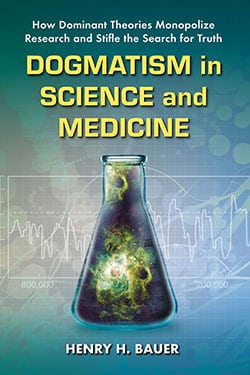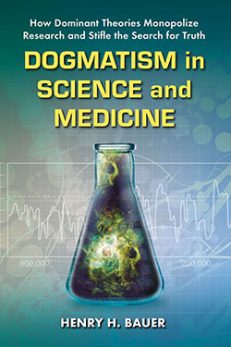Dogmatism in Science and Medicine
How Dominant Theories Monopolize Research and Stifle the Search for Truth
$39.95
In stock
About the Book
The nature of scientific activity has changed dramatically over the last half century, and the objectivity and rigorous search for evidence that once defined it are being abandoned. Increasingly, this text argues, dogma has taken the place of authentic science.
This study examines how conflicts of interest—both institutional and individual—have become pervasive in the science world, and also explores the troubling state of research funding and flaws of the peer-review process. It looks in depth at the dominance of several specific theories, including the Big Bang cosmology, human-caused global warming, HIV as a cause of AIDS, and the efficacy of anti-depressant drugs. In a scientific environment where distinguished experts who hold contrary views are shunned, this book is an important contribution to the examination of scientific heterodoxies.
About the Author(s)
Bibliographic Details
Henry H. Bauer
Format: softcover (6 x 9)
Pages: 301
Bibliographic Info: 11 figures, 5 tables, bibliography, index
Copyright Date: 2012
pISBN: 978-0-7864-6301-5
eISBN: 978-0-7864-8574-1
Imprint: McFarland
Table of Contents
List of Figures vi
List of Tables vii
Preface 1
Introduction 5
1. Three Prominent Knowledge Monopolies and Research Cartels 13
2. Common Features of Knowledge Monopolies 30
3. A Public Act of Censorship: Elsevier and Medical Hypotheses 74
4. More Cartels and Hegemonies 92
5. Knowledge Monopolies as a New Phenomenon in Science 120
6. How Science Became Reliable, and Why It No Longer Is 140
7. Public Knowledge About Science 168
8. Official Reports Are Not Scientific Publications 196
9. 21st-Century Science: Post-Modern, with Knowledge Monopolies 214
10. Consequences 227
11. Can 21st-Century Science Become Trustworthy Again? 243
Bibliography 265
Index 284
Book Reviews & Awards
“Recommended”—Choice; “a most worthwhile book…well-researched”—Social Epistemology Review and Reply Collective; “explores how heterodox ideas are suppressed or ignored by professionals claiming to be open minded and objective”—Reference & Research Book News.






